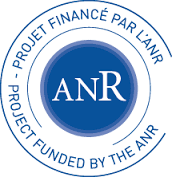job-2019-lis-postdoc
Differences
This shows you the differences between two versions of the page.
| Next revision | Previous revision | ||
|
job-2019-lis-postdoc [2018/12/26 10:07] carlos.ramisch created |
job-2019-lis-postdoc [2018/12/26 10:33] carlos.ramisch |
||
|---|---|---|---|
| Line 22: | Line 22: | ||
| Albeit this progress, the performance of MWE identification systems is still not on pair with the performance of other text analysis tools. For instance, the best MWE identification system at the [[http:// | Albeit this progress, the performance of MWE identification systems is still not on pair with the performance of other text analysis tools. For instance, the best MWE identification system at the [[http:// | ||
| - | Part of these figures can be explained by the challenging nature of MWEs, and by the sparse amount of training data. However, the models being employed are also not fully compatible with the nature of the task. Indeed, supervised learning is based on generalisations made from observations. MWEs are by definition idiosyncratic, | + | Part of these figures can be explained by the challenging nature of MWEs, and by the sparse amount of training data. However, the models being employed are also not fully compatible with the nature of the phenomenon. Indeed, supervised learning is based on generalisations made from observations. MWEs are by definition idiosyncratic, |
| - | **The goal of this post-doc | + | **The goal of this postdoc |
| - | The TALEP team has experience with supervised MWE identification using recurrent neural networks ([[http:// | + | The TALEP team has experience with supervised MWE identification using recurrent neural networks ([[http:// |
| ---------------------- | ---------------------- | ||
| ==== Envronment ==== | ==== Envronment ==== | ||
| - | This position is funded by the [[http:// | + | This position is funded by the [[http:// |
| - | The post-doc | + | The postdoc |
| [[https:// | [[https:// | ||
job-2019-lis-postdoc.txt · Last modified: 2018/12/26 10:33 by carlos.ramisch

